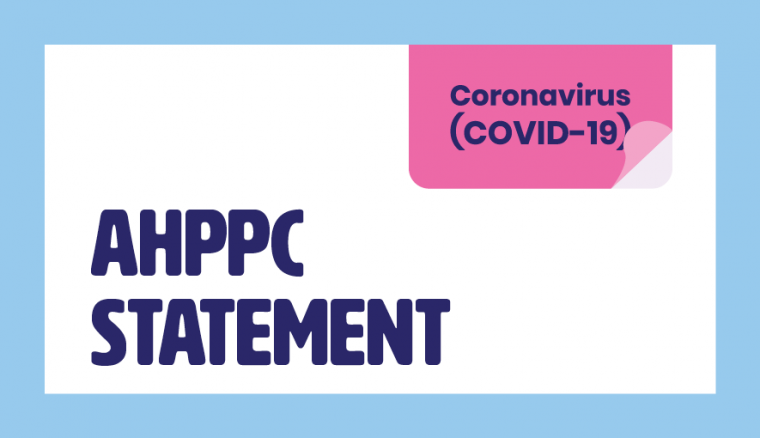
AHPPC today considered the resumption of sporting and recreational activity in Australian society, including the resumption of elite competition in professional sporting codes.
AHPPC recognised the importance of the resumption of sport and recreation to Australian society emerging from the COVID-19 environment, and the many health, economic, social and cultural benefits sport provides.
AHPPC was firm that the resumption of sport and recreation activity at any level must not compromise the health of individuals or the community, and must be based on objective health information to ensure potential transmission rates are conducive to the safe conduct of sport and recreation.
Accordingly, AHPPC endorsed National Principles for the resumption of sport and recreation activity, noting this should only occur where activity-specific, stringent, public and personal health measures are observed, and meeting minimum standards. Associated with this, AHPPC also endorsed the Australian Institute of Sport's Framework for Rebooting Sport in a COVID-19 Environment and recommended that a move to Level B of this Framework may be appropriate in coming weeks, pending consideration by National Cabinet.
AHPPC also endorsed the formation of a COVID-19 Sports and Health Committee comprising the Commonwealth Deputy CMO, Australian Institute of Sport (AIS) Medical Director, an infection control expert, representatives of Federal, State and Territory Departments of Health, Sport and Recreation and relevant sports medical officers from the National Sporting Organisations, to closely monitor and report on any COVID-19 related issues or manifestations in the sector during the resumption phase, as well as any further and specific decisions about the resumption of sport - for a minimum of three months from commencement.
National principles for resumption of sport and recreation activities
- Resumption of sport and recreation activities can contribute many health, economic, social and cultural benefits to Australian society emerging from the COVID-19 environment.
- Resumption of sport and recreation activities should not compromise the health of individuals or the community.
- Resumption of sport and recreation activities will be based on objective health information to ensure they are conducted safely and do not risk increased COVID-19 local transmission rates.
- All decisions about resumption of sport and recreation activities must take place with careful reference to these National Principles following close consultation with Federal, State/Territory and/or Local Public Health Authorities, as relevant.
- The AIS 'Framework for Rebooting Sport in a COVID-19 Environment' is adopted as the guide for the reintroduction of sport and recreation in Australia, including high performance sport. The AIS Framework incorporates consideration of the differences between contact and non-contact sport and indoor and outdoor activity. Whilst the three phases A, B and C of the AIS Framework provide a general guide, individual jurisdictions may provide guidance on the timing of introduction of various levels of sport participation with regard to local epidemiology, risk mitigation strategies and public health capacity.
- International evidence to date is suggestive that outdoor activities are a lower risk setting for COVID-19 transmission. There are no good data on risks of indoor sporting activity but, at this time, the risk is assumed to be greater than for outdoor sporting activity, even with similar mitigation steps taken.
- All individuals who participate in, and contribute to, sport and recreation will be considered in resumption plans, including those at the high performance/professional level, those at the community competitive level, and those who wish to enjoy passive (non-contact) individual sports and recreation.
- Resumption of community sport and recreation activity should take place in a staged fashion with an initial phase of small group (10) activities including full contact training/competition in sport. Individual jurisdictions will determine progression through these phases, taking account of local epidemiology, risk mitigation strategies and public health capability.
- This includes the resumption of children's outdoor sport with strict physical distancing measures for non-sporting attendees such as parents.
- This includes the resumption of outdoor recreational activities including (but not limited to) outdoor-based personal training and boot camps, golf, fishing, bush-walking, swimming, etc.
- Significantly enhanced risk mitigation (including avoidance and physical distancing) must be applied to all indoor activities associated with outdoor sporting codes (e.g. club rooms, training facilities, gymnasia and the like).
- For high performance and professional sporting organisations, the regime underpinned in the AIS Framework is considered a minimum baseline standard required to be met before the resumption of training and match play, noting most sports and participants are currently operating at level A of the AIS framework.
- If sporting and recreational organisations are seeking specific exemptions in order to recommence activity, particularly with regard to competitions, they are required to engage with, and where necessary seek approvals from, the respective State/Territory and/or Local Public Health Authorities regarding additional measures to reduce the risk of COVID-19 spread.
- At all times sport and recreation organisations must respond to the directives of Public Health Authorities. Localised outbreaks may require sporting organisations to again restrict activity and those organisations must be ready to respond accordingly. The detection of a positive COVID-19 case in a sporting or recreation club or organisation will result in a standard public health response, which could include quarantine of a whole team or large group, and close contacts, for the required period.
- The risks associated with large gatherings are such that, for the foreseeable future, elite sports, if recommenced, should do so in a spectator-free environment with the minimum support staff available to support the competition. Community sport and recreation activities should limit those present to the minimum required to support the participants (e.g. one parent or carer per child if necessary).
- The sporting environment (training and competition venues) should be assessed to ensure precautions are taken to minimise risk to those participating in sport and those attending sporting events as spectators (where and when permissible).
- The safety and well-being of the Australian community will be the priority in any further and specific decisions about the resumption of sport, which will be considered by the COVID-19 Sports and Health Committee.






